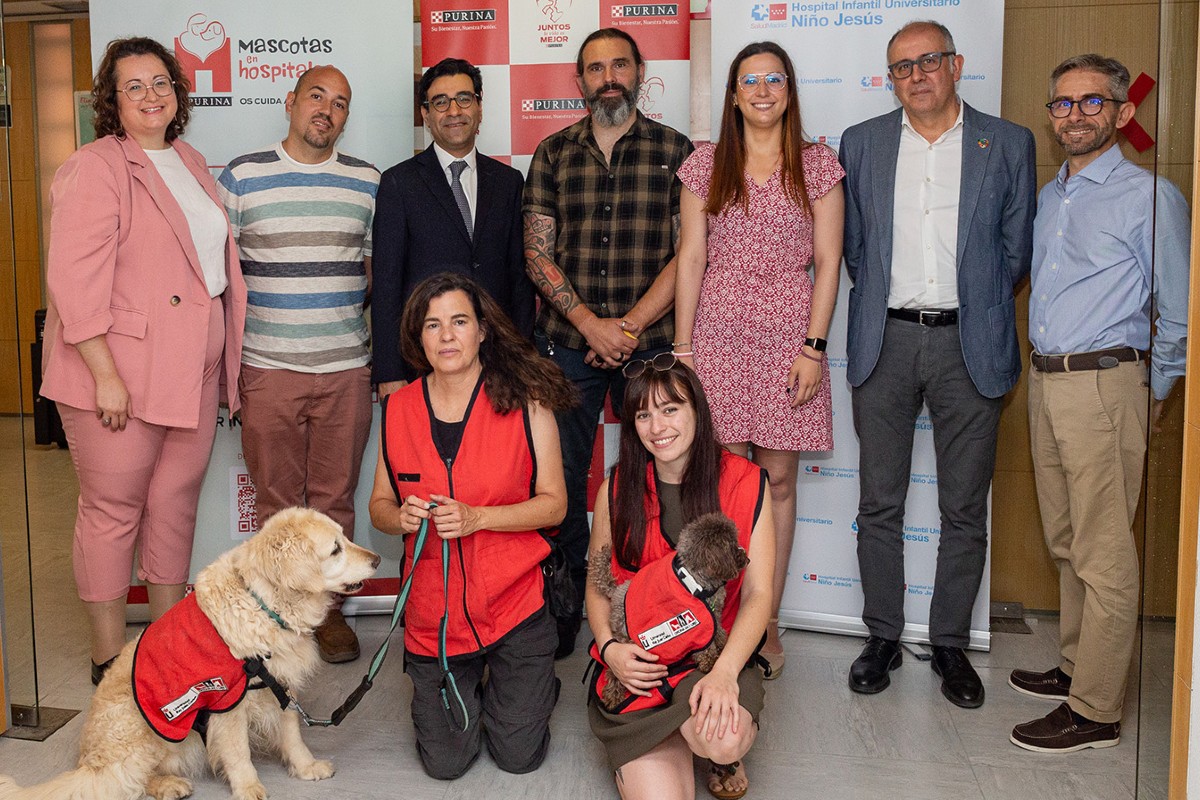Raúl García Hémonnet/Editor
The interaction with animals has proven to be effective in the treatment of different types of disorders, such as ASD, childhood mental disorder or to combat forgetfulness. This new study, recently presented in Madrid, has shown that Animal Assisted Interventions are also effective in treating people with Eating Disorders (EDs).
According to the researcher Beatriz Martínez, psychiatrist and coordinator of the Adolescent Day Hospital of the Psychiatry and Psychology Service of the Niño Jesús Hospital, a total of 32 patients participated in the study. Two groups were established. A control one, which followed the daily operation of the center without coming into contact with animals, and another in which therapy with dogs was applied.
In the latter, according to study data, the depression and anxiety parameters of the patients improved by 6 points compared to the control group, which experienced an improvement of 1.
The clearest improvement occurred in items related to aspects such as distrust of others, fears regarding the sensations of one's own body, and fear of physical changes. In addition, an improvement was noted regarding the body composition and weight of the intervention group, progressing 0 after the sessions. There was also an improvement in family ties among patients in the intervention group.
The research methodology has consisted of conducting 24 weekly sessions between April and December 2021, with a duration of 50 minutes. Each session included the participation of an expert psychologist in Animal Assisted Interventions (AAI), two specialist technicians and two dogs.
Throughout the sessions, patients and dogs welcomed each other and performed animal training exercises, with effects on physical and mental health and well-being. The activity closed with a farewell.
During the presentation of the report, the vice-rector for Planning and Strategy, Andrés Martínez, pointed out that eating disorders are identified "by a persistent and difficult-to-eradicate alteration in the diet and psychosocial behavior of patients." Around 400.000 people suffer from eating disorders in Spain.
From Purina, its general director, Mark El-Khoury, has expressed the conviction of the benefits that companion animals bring to society. In addition, he recalled that the brand has participated in investigations of this type since 2015.
On the other hand, the director of the URJC Animal Assisted Interventions Office, Israel González, highlighted the role of the technicians before, during and after the sessions. Always safeguarding Animal Welfare and highlighting the importance of the proper selection of the dog according to the group and the program to be developed. Showing his satisfaction with the work that is being carried out and thanking the support of both the University and Purina Spain.




